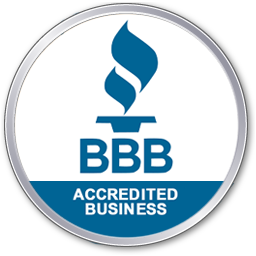You’ve found your perfect house and fallen in love with it. It’s got the white picket fence, close to the right schools, and the big yard you’ve always dreamed of.
There’s just one catch. Buried underneath that yard is a big ol’ heating oil tank. The State of Oregon gives them an average life of 20 years, and you know chances are it’s been down there way longer.
For many people, an underground heating oil tank is a dealbreaker – especially if it’s leaking. For others, it’s an inconvenience that they can handle during the selling/buying process. Realtors need to understand both sides of the coin.
We’re going to take a deep dive into what every seller, buyer, and realtor needs to know about homes with an underground oil tank. We’ll explore whether buying a home with an oil tank is ever worth it and what you should do if you decide to go ahead with the purchase.
How to Tell If an Underground Heating Oil Tank Is Leaking
Underground heating oil tanks are typically made of steel. While it’s hardwearing, over time, it will react with the soil and start to corrode. At first, small holes develop that leak relatively little oil, but they can develop into more serious breaches.
If you’re a seller, you may have noticed that your heating bills are creeping up. You’ll have to refill the tank more regularly. If the leak is bad, you may notice plants dying around the tank or a strong smell around it.
It’s worth bearing in mind that a home oil tank generally holds around 500 to 1500 gallons of oil. Any leaks can be catastrophic for the local environment. They pollute soil and groundwater and can harm wildlife.
The only way for a seller or a buyer to know for sure is with soil testing. The company will take several samples. They’ll find the leak and work out how far the oil has spread.
Oregon state law requires that all leaks are reported to the Department of Environmental Quality (DEQ) within 72 hours of discovery. You must then clean the leak, adhering to DEQ standards.
This will lead to a recommendation to either decommission the tank or a risk assessment. If you’re selling a property with an underground heating oil tank, prepare for serious negotiations from the buyer, whether it’s leaking or not.
Requirements for Sellers
You may know that there’s an old oil tank somewhere on your property but have never used it. You are required by state law (Oregon Revised Statute 105.464) to make a disclosure to any buyer regarding:
- Knowledge of underground heating oil tanks on the property
- Contaminated water
- Contaminated soil
Although you are not required to locate the tank or provide soil testing results, buyers are likely to insist on it. Companies can run a tank sweep, using ground penetrating radar to locate the tank. Running these tests before you try to sell your home may speed up the closing process.
Should You Remove an Underground Oil Tank?
This is up to you. If you choose to keep it, be prepared for a long, hard house-selling process. Most buyers are turned-off by tanks and mortgage lenders don’t like them either.
In most cases, the best choice is to have the oil tank decommissioned or removed – and this is what most realtors will advise. If it’s not leaking now, it’s probably only a matter of time before it does. Above-ground tanks and natural gas are safer and easier to maintain.
Urgent Situations
A leaky tank needs to be urgently removed. The DEQ’s requirements must be followed to safely remove the tank and handle the cleanup. It’s not enough to simply empty or decommission a tank in these situations.
Non-urgent Situations
If the tank is relatively new and intact, it may not be urgent to remove it.
Generally, homeowner’s insurance will not cover a home oil tank. The new homeowners may choose to take out oil tank insurance and remove it at a later date. This will pay out in the event of a leak.
Another option is to have your old home oil tank decommissioned, but not removed. This means that all the oil has been emptied, cleaned, and then filled with an inert material, such as sand. You can then provide a decommissioning letter from the DEQ to the buyer.
Buyers beware – emptying the tank is not the same as decommissioning it. Make sure that you get a decommissioning letter from the buyer before closing. You will be responsible for any cleanup afterward, even if the leak happened before you bought the property!
What to Do If You’re Buying a Home That Needs an Underground Tank Removed Immediately
The costs of removing a leaking oil tank are only one part of the picture. There is also the cost of soil and groundwater remediation. Depending on the size of the leak, this could cost tens of thousands of dollars.
First, get a quotation for tank removal and remediation works from a licensed HOT Tank Services Provider. Then use this to negotiate the sale price or make this a condition of the sale. Only close when the work is complete, and you have a HOT Certification Report certified by DEQ.
It’s important not to take a chance in these situations. However much you love the house now, you’ll feel differently if it turns into a money pit.
Frequently Asked Questions by Realtors About Underground Heating Oil Tanks
Approximately 1 in 30 households in Oregon use heating oil. So while you’re not going to encounter this situation every day, it’s common enough that you need to know how to handle it.
Here are the top questions that realtors have about buying and selling a home with an underground heating oil tank.
1. My Client Wants to Buy a House With an Underground Tank. What Do You Think?
They need to insist on soil testing. If this comes back clean, they still need to think carefully about how they will insure and manage the tank moving forward. They also need to check with their mortgage lender whether this is an issue for them.
The best course of action may still be to insist on tank removal before closing the sale.
If the tank is not in use, they need to insist on a decommission letter from the DEQ. Ideally, negotiate with the seller to have the tank removed before closing or secure a discount to cover removing the tank at a later date.
2. I Have a Client Who Has an Underground Tank and Needs to Sell, but Cannot Afford the Removal Cost. What Should They Do?
They may be able to negotiate a discount on the property with the buyer. In this case, the buyer should carry out a soil test to determine whether the tank is leaking. This will affect the level of the discount.
Your client may also be able to negotiate with a removal service to pay the fees at closing.
3. My Client Has No Money and Must Sell the House. They Need the Underground Tank Removed. Can My Client Pay for Your Services at Closing?
This would need to be reviewed on a case-by-case basis. If the deal falls through, how will the fees be paid?
4. What Can We Do if the Seller Refuses to Remove the Underground Tank and My Clients Are Really Interested in the House?
This may not be a total red flag, but it should set alarm bells ringing.
Why are they refusing to remove it? Do they know something they don’t want the buyer to know? Whatever the reason, it’s your responsibility to warn the buyer, because they’ll be liable for any contamination once they become the legal owners.
At the very least, the buyers should insist on soil sampling. If they’ve got their heart set on the house, they could even offer to pay half the tank removal costs. But buyers should never proceed simply hoping for the best.
5. How Much Does a Leaking Tank Cost to Cure?
The costs vary widely depending on the extent of the leak. However, they are always costly to resolve. The EPA estimates that if only a small amount of soil is contaminated, costs may be as low as $10,000.
More serious leaks can cost more than $130,000 and over $1 million in the most serious cases.
How to Decommission an Underground Heating Oil Tank That Isn’t Leaking
There are four main stages to the decommissioning process. They are:
- Empty the tank
- Clean it out
- Fill it with a slurry of sand or concrete
- Remove fill and vent pipes
The decommissioned tank may need to be registered with DEQ. You’ll then get a decommission letter that you can pass on to the buyer when you sell the property.
Choose Alpha Environmental for Heating Oil Tank Decommissioning and Removal
At Alpha Environmental, we understand and carry out every stage of the process. From soil testing to heating oil tank removal and decommissioning, we handle it all. We can also carry out soil and groundwater remediation.
To discuss your project, call us at (503) 292-5346 or reach out online today!




